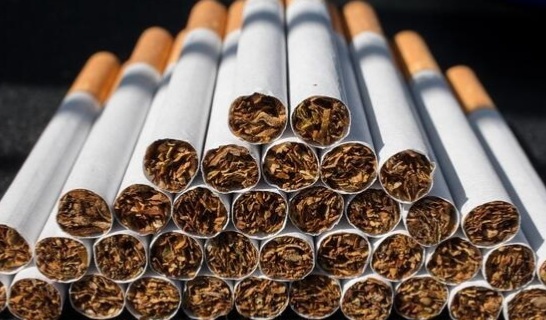The Biden administration’s Food and Drug Administration (FDA) has taken a major step toward implementing a rule that could effectively ban current cigarettes in favor of versions with significantly lower nicotine levels.
On Wednesday, the FDA announced its proposed rule, which aims to make cigarettes and other combusted tobacco products minimally or non-addictive by capping nicotine levels. If finalized, the United States would become the first country to take such an ambitious step to combat smoking-related diseases and deaths.
“The FDA first announced its intent to propose such a rule in 2018, and today’s announcement is an important next step in the rulemaking process,” the agency said. The proposal will be subject to public comment and reviewed by the FDA’s Tobacco Products Scientific Advisory Committee.
The “Tobacco Product Standard for Nicotine Level of Certain Tobacco Products” cleared a regulatory review earlier this month but has not yet been published or finalized. According to the FDA, the rule would limit nicotine levels in cigarettes and certain other tobacco products to 0.7 milligrams per gram of tobacco—far below current market levels.
FDA Commissioner Robert M. Califf described the rule as a significant opportunity to reduce smoking-related illness and death, saying, “This action, if finalized, could save many lives and dramatically reduce the burden of severe illness and disability while also saving enormous costs.”
However, the proposal has sparked concerns about unintended consequences. Experts warn that reducing nicotine in cigarettes could fuel black market sales, with criminal organizations like cartels potentially capitalizing on the demand for higher-nicotine cigarettes.
“This proposal is a gift to organized crime, whether it’s cartels, Chinese organized crime, or the Russian mafia,” said Rich Marianos, former assistant director of the Bureau of Alcohol, Tobacco, Firearms, and Explosives. He warned that illicit tobacco operations would likely expand, creating safety risks for Americans seeking unregulated products.
The Biden administration’s push for this rule follows a previous attempt to ban menthol cigarettes as part of the Cancer Moonshot initiative, which faced significant backlash. Critics argued the menthol ban unfairly targeted minority communities and would drive illegal sales.
Health and Human Services Secretary Xavier Becerra acknowledged the need for further dialogue, noting the immense public feedback on the issue.
State-level bans offer a glimpse of potential outcomes. Massachusetts prohibited menthol cigarettes and flavored tobacco in 2020, leading to a surge in illegal sales. Police recently uncovered operations involving hundreds of packs of illicit menthol cigarettes alongside other contraband.
The effort to regulate nicotine levels builds on years of federal tobacco control measures. The Family Smoking Prevention and Tobacco Control Act of 2009 granted the FDA authority to oversee tobacco products. Subsequent administrations, including the Trump administration, explored strategies to reduce nicotine in cigarettes to help smokers quit.
The FDA insists the proposed rule is not a ban on cigarettes but a measure to reduce their addictiveness, potentially preventing future generations from becoming dependent and aiding current smokers in quitting.













